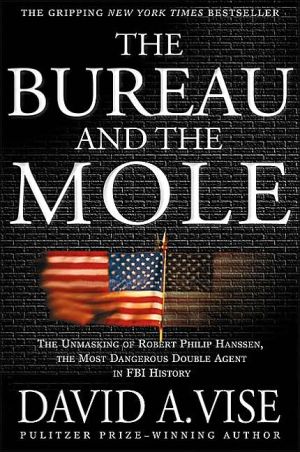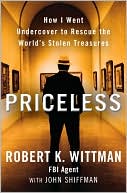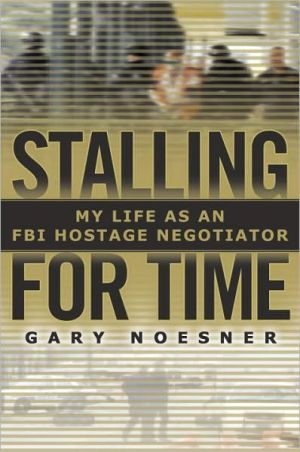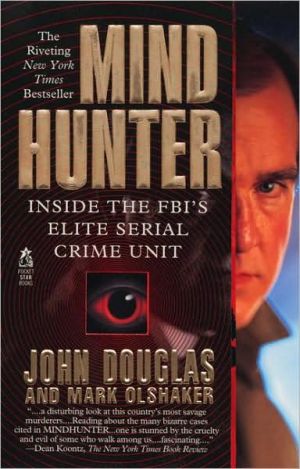The Bureau and the Mole: The Unmasking of Robert Philip Hanssen, the Most Dangerous Double Agent in FBI History
In 1979, FBI Agent Robert Philip Hanssen began to sell some of America's most closely guarded intelligence secrets to the Soviet Union. Over the next twenty-two years, the massive volume of information he divulged to the Russians from the FBI, CIA, NSA, and White House would compromise decades of espionage work and put the national security of the United States in immediate jeopardy. But during the mid-1990s, FBI Director Louis J. Freeh discovered that there was a mole within the Bureau, and...
Search in google:
Called "a first-rate spy story" (Entertainment Weekly), The Bureau and the Mole is the sensational New York Times best-seller that tells the inside story of FBI counterintelligence agent Robert Philip Hanssen, a seemingly all-American boy who would become the perfect traitor, jeopardizing America's national security for over twenty years by selling top-secret information to the Russians. Drawing from a wide variety of sources in the FBI, the Justice Department, the White House, and the intelligence community, Pulitzer Prize-winning author David A. Vise tells the story of how Hanssen employed the very sources and methods his own nation had entrusted to him in a devious game of deceit -- simply because he had something to prove. Vise also interweaves the narrative of how FBI director Louis B. Freeh led the government's desperate search for its betrayer among its own ranks, from the false leads, to the near misses, to its ultimate, shocking conclusion. Fascinating, gripping, and provocative, The Bureau and the Mole is a harrowing tale of how one man's treachery rocked a fraternity built on fidelity, bravery, and integrity -- and how the dedicated perseverance of another brought him to justice. "Absorbing ... Vise's account of Mr. Hanssen's road to becoming a double agent is fascinating." -- Michiko Kakutani, The New York Times "Brisk, well documented ... a penetrating study of the villain and a gripping summary of the appalling evidence against him." -- Charles McCarry, The Wall Street Journal "A carefully researched and compelling account, with a startling bombshell." -- David W. Marston, The Baltimore Sun "Intelligent and well researched." -- Allen Weinstein, The Washington Post Book World Publishers Weekly By the time fellow FBI agents arrested Robert Hanssen in February 2001, he'd been spying for the Russians off and on for two decades. Pulitzer Prize-winning Washington Post scribe Vise attempts to explain why Hanssen did it and how he got away with it in this comprehensive account. Hanssen, says Vise, was a highly intelligent but socially inept loner who felt "overlooked and underappreciated" by his colleagues at the Bureau. Determined to prove he was better than them and eager to profit from his superiority Hanssen decided to begin passing classified documents to his KGB counterparts in exchange for diamonds and hundreds of thousands of dollars. He also revealed the names of at least nine U.S. spies working in the KGB, several of whom were subsequently executed. But the FBI, Vise writes, was so blind to its own vulnerabilities that it ignored the warning signs even when Hanssen's brother-in-law (also an FBI agent) reported that Hanssen was hiding huge sums of cash at home. Vise adheres to a plain newspaper style in his account, which steals some of the excitement from Hanssen's dramatic spy craft; he also includes long, needless digressions on the career of FBI Director Louis Freeh. But Vise's research and reporting are first-rate and his sources (Hanssen's wife, mother and best friend, as well as other FBI agents and ex-KGB operatives) are excellent. This is a chilling portrait of a man who betrayed his country simply to see if he could. (Jan.) Forecast: This is one of a trio of books on Hanssen, including The Spy Who Stayed Out in the Cold (Forecasts, Oct. 1), one of which came in too late for review (see note, The Spy Next Door, page 59). The market may be too crowded for Atlantic's optimistic 50,000-copy first printing. Copyright 2001 Cahners Business Information.
Author's NoteixA Note to the ReaderxiPrologue11Alone42Mad Dog203A G-Man284A Charitable Contribution405The Pizza Connection516Betrayal667Control868The Fbi's Blunder969The Boss9910The Stripper10711The Unwitting Porn Star11512Friends12913Independence Day14214Respecting the Russians15115Double Trouble15816The Case Agent16817Clashing With Clinton17818A long and Lonely Time19319Watching and Waiting20320What took You so Long?21121Freeh Fall217Epilogue224Appendix IThe Betrayals of a Spy239Appendix IIThe E-mails of a Spy247Appendix IIIThe Sexual Fantasies of a Spy257Sources267Acknowledgments271
\ From Barnes & NobleOffering a fresh perspective on the Robert Hanssen spy case, Pulitzer Prize-winning journalist David A. Vise interweaves the stories of Hanssen's long-running treason and FBI director Louis Freeh's desperate search for the mole within his department.\ \ \ \ \ Publishers WeeklyBy the time fellow FBI agents arrested Robert Hanssen in February 2001, he'd been spying for the Russians off and on for two decades. Pulitzer Prize-winning Washington Post scribe Vise attempts to explain why Hanssen did it and how he got away with it in this comprehensive account. Hanssen, says Vise, was a highly intelligent but socially inept loner who felt "overlooked and underappreciated" by his colleagues at the Bureau. Determined to prove he was better than them and eager to profit from his superiority Hanssen decided to begin passing classified documents to his KGB counterparts in exchange for diamonds and hundreds of thousands of dollars. He also revealed the names of at least nine U.S. spies working in the KGB, several of whom were subsequently executed. But the FBI, Vise writes, was so blind to its own vulnerabilities that it ignored the warning signs even when Hanssen's brother-in-law (also an FBI agent) reported that Hanssen was hiding huge sums of cash at home. Vise adheres to a plain newspaper style in his account, which steals some of the excitement from Hanssen's dramatic spy craft; he also includes long, needless digressions on the career of FBI Director Louis Freeh. But Vise's research and reporting are first-rate and his sources (Hanssen's wife, mother and best friend, as well as other FBI agents and ex-KGB operatives) are excellent. This is a chilling portrait of a man who betrayed his country simply to see if he could. (Jan.) Forecast: This is one of a trio of books on Hanssen, including The Spy Who Stayed Out in the Cold (Forecasts, Oct. 1), one of which came in too late for review (see note, The Spy Next Door, page 59). The market may be too crowded for Atlantic's optimistic 50,000-copy first printing. Copyright 2001 Cahners Business Information.\ \ \ Library JournalHanssen was a smart, elitist counterintelligence expert who had a large family to support and felt bored and underappreciated by the FBI. So he began selling U.S. intelligence and defense information to the Soviets (and then the Russians) who supposedly did not know who their benefactor was. This is an interesting account of how he managed to carry out his betrayal for over 20 years until his arrest on February 18, 2001. Two appendixes include a good summary of the information that Hanssen passed along and the texts of some of his e-mail messages (other messages are included in narrative); the third appendix, which features pornography Hanssen wrote about his wife, is tasteless and disrespectful and unrelated to the basic theme of the book. Adrian Havill's The Spy Who Stayed Out in the Cold (LJ 10/1/01) is better documented and has more information about Hanssen's pre-FBI life, while Vise's book heavily integrates FBI Director Louis Freeh into the story. What comes through clearly in both books is that the FBI fumbled the ball and let Hanssen continue his traitorous activities. Vise is a Pulitzer Prize-winning investigative journalist for the Washington Post. Suitable for both public and academic libraries. Daniel K. Blewett, Coll. of DuPage Lib., Glen Ellyn, IL Copyright 2001 Cahners Business Information.\ \








